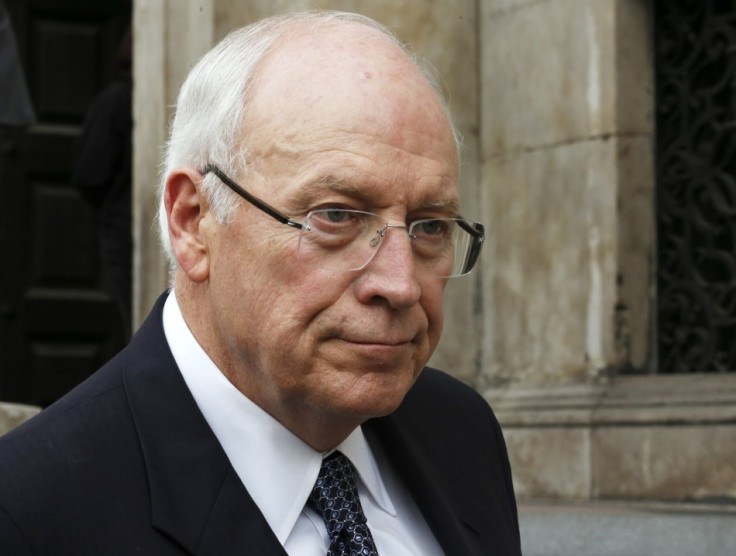Dick Cheney Had Heart Device Replaced Over Fears of Homeland Style Terrorist Attack

Former US Vice-President Dick Cheney has revealed that he asked his doctor to remove a heart monitoring device as he feared terrorists would be able to activate it wirelessly and send him into cardiac arrest.
Cheney, widely regarded as one of the most powerful vice-presidents in US history when he served under George W Bush, has a long history of heart problems.
He said that at the time he was chosen to be President Gerald Ford's chief of staff at 34, he was smoking up to three packets of cigarettes a day and devouring a dozen doughnuts.
At 37 he suffered the first of five heart attacks, and was subsequently fitted with a defibrillator, which detects irregular heartbeats and delivers an electric jolt to stabilise them.
In 2007, he asked his doctor, Jonathan Reiner, to remove the device and replace it with one with the wireless control component removed, fearing that terrorists might gain control of it and deliver a fatal electric jolt.
He was surprised to see his fears later mirrored in hit US television drama Homeland, in which a character playing a hawkish vice-president is murdered by terrorists through his pacemaker.
"I found it credible," Cheney tells 60 Minutes in an interview to be broadcast on Sunday. "I know from the experience we had, and the necessity for adjusting my own device, that it was an accurate portrayal of what was possible."
Cheney and Reiner have co-written a book entitled Heart: An American Odyssey, in which they chronicle how Cheney has dealt with his heart condition while working in a series of high-pressure jobs.
Reiner revealed that he feared for his patient's health after tests on the morning of 11 September 2001 detected high levels of potassium in his blood. This can cause a condition called hyperkalemia and lead to fatal heart attacks.
Reiner admitted that after watching the events of the day unfold on television, he thought "Oh, great, the vice-president is going to die tonight from hyperkalemia."
In 2010, Cheney was hospitalised and fitted with a Left Ventricular Assist Device, which helps regularise the heart beat, while he awaited a heart transplant.
He waited for 20 months, twice as long as the average patient, before being given a new heart at the age of 71, reportedly planning his funeral during that time as he did not expect to live.
Europol recently issued a warning that those fitted with pacemakers were increasingly vulnerable to attacks by hackers, with one notorious hacker boasting that he was able to gain control of pacemakers before he committed suicide in mysterious circumstances.
© Copyright IBTimes 2025. All rights reserved.





















